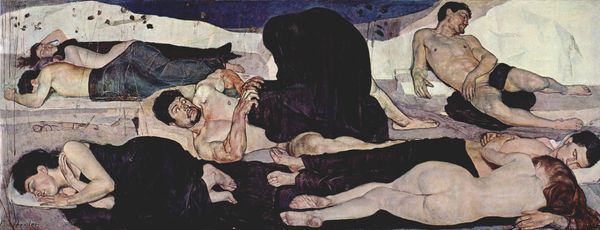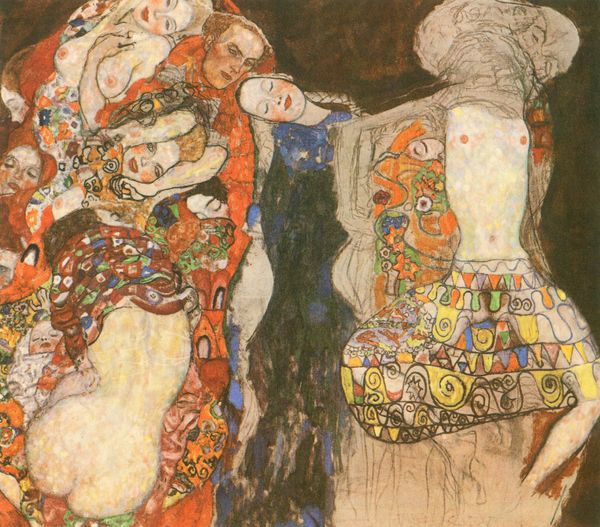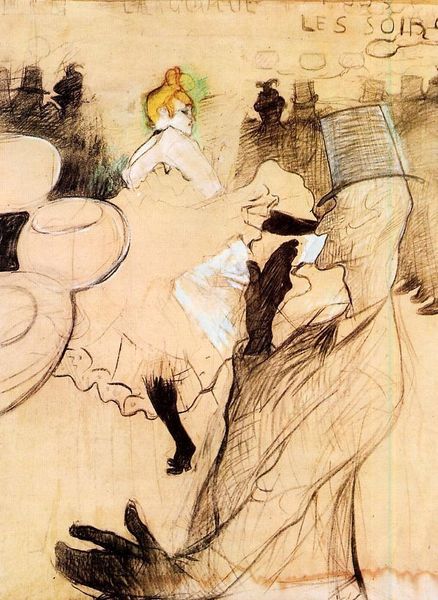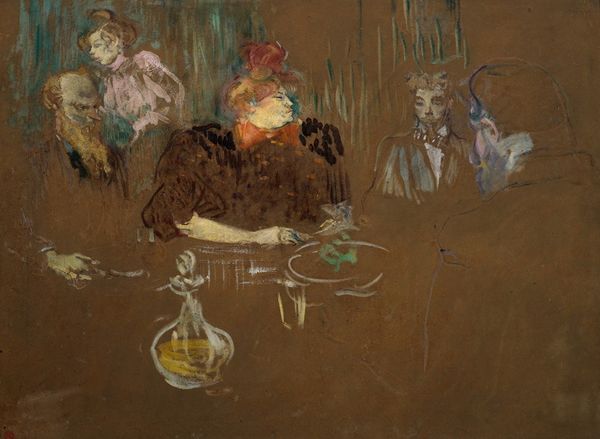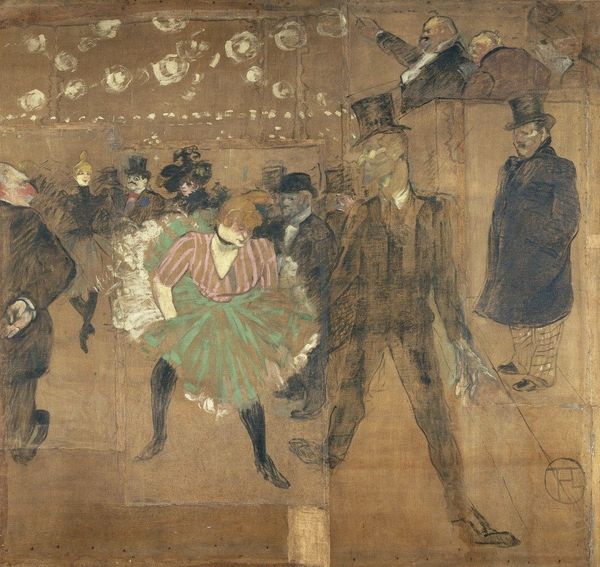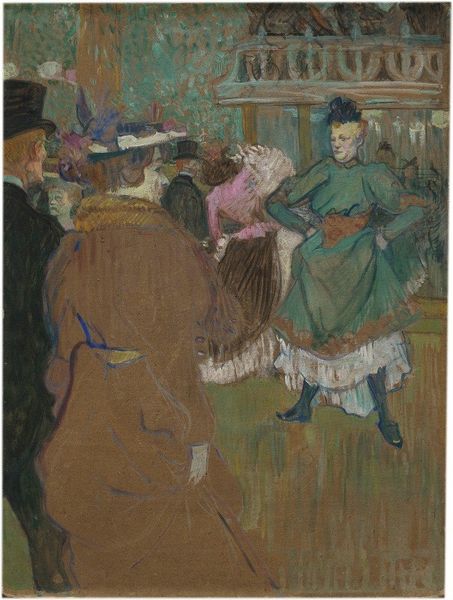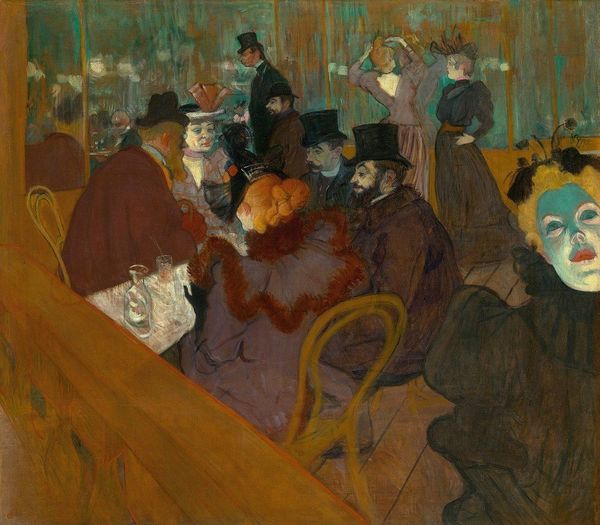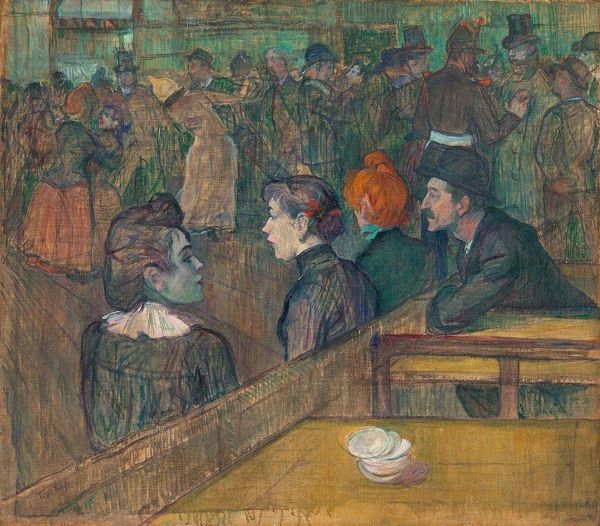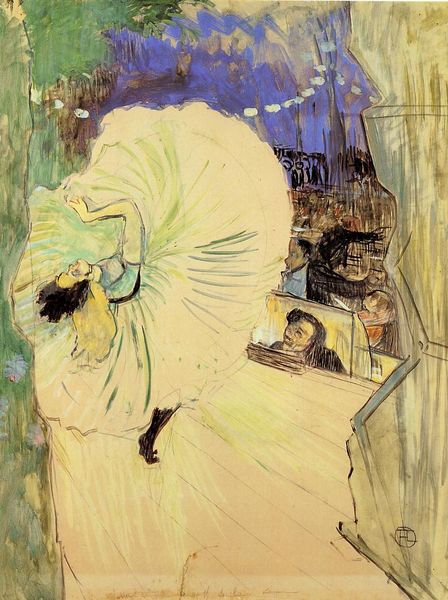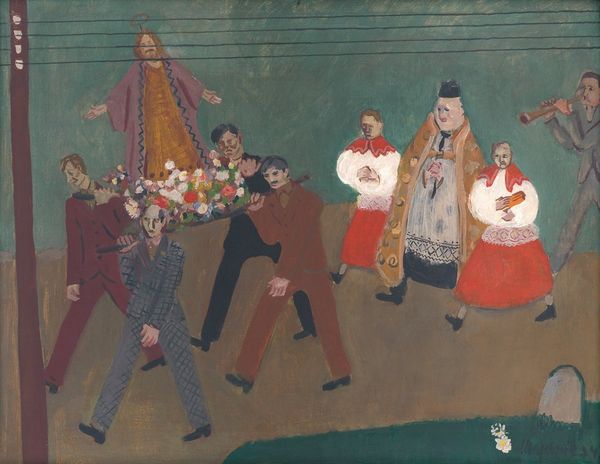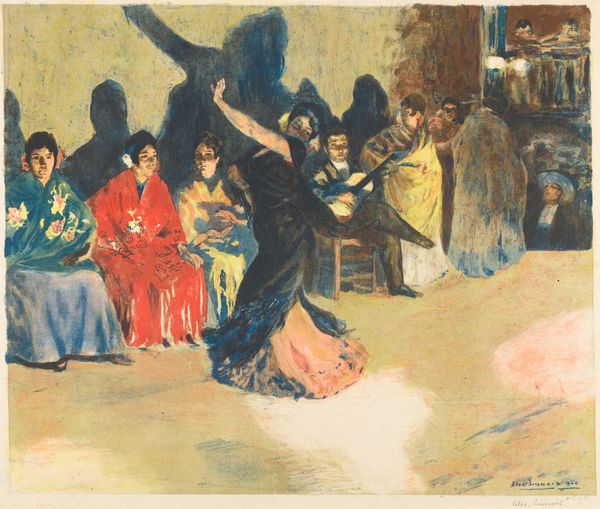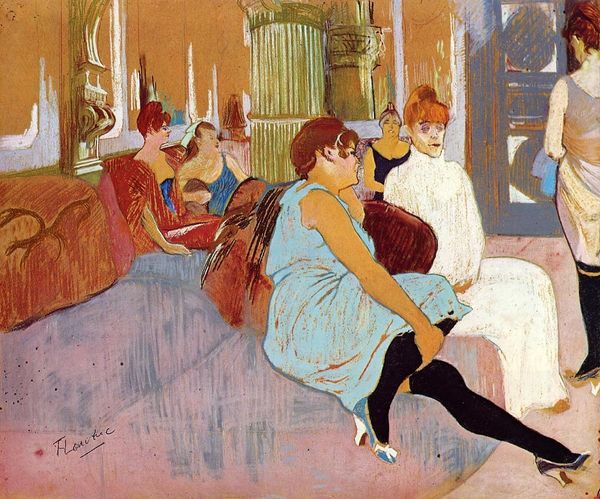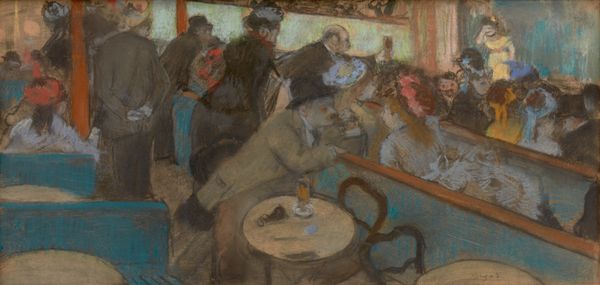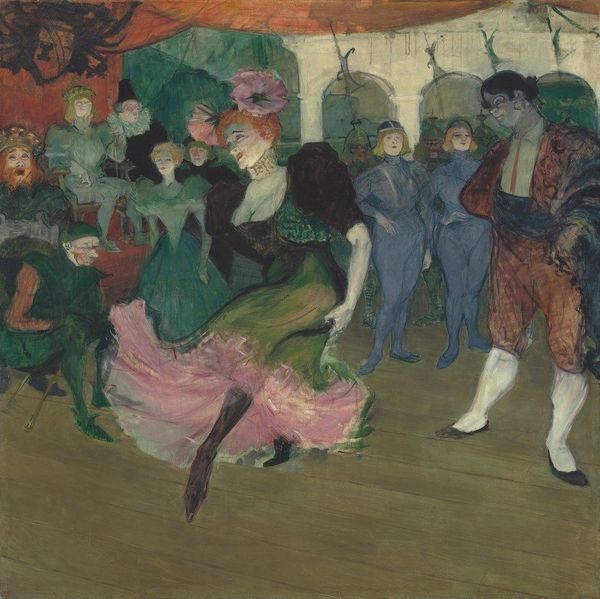
painting, oil-paint
#
portrait
#
figurative
#
painting
#
impressionism
#
french
#
oil-paint
#
figuration
#
genre-painting
#
history-painting
#
watercolor
Copyright: Public Domain: Artvee
Henri de Toulouse-Lautrec painted "Equestrienne" during the late 19th century, a period characterized by social upheaval and artistic innovation in France. Lautrec, an aristocrat who found himself on the margins of society due to his physical disabilities, was drawn to the demimonde of Montmartre. His paintings, like this one, often depicted performers, prostitutes, and other figures existing outside mainstream society. The circus was a popular form of entertainment, yet also a site of complex gender dynamics. Here, Lautrec captures a female equestrian, a figure of both spectacle and strength, embodying a certain degree of female empowerment within the confines of the performance. Lautrec's choice of subject reflects his broader interest in portraying the realities of Parisian life, often focusing on those whose stories were frequently ignored or misrepresented. "Equestrienne" serves as a poignant reminder of the diverse experiences and identities that comprised the cultural fabric of 19th-century Paris.
Comments
No comments
Be the first to comment and join the conversation on the ultimate creative platform.
